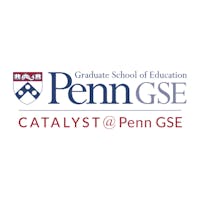For the past decade, the most esteemed business plan competition for edtech entrepreneurs has been held by the University of Pennsylvania Graduate School of Education and sponsored by Milken Family Foundation. The 2019 competition opens January 8 and will accept applications until February 13. Even better, this year, the program aims to crank up the value that it provides to entrepreneurs.
Since its debut in 2010, the Milken-Penn GSE Education Business Plan Competition (EBPC) has awarded about $1 million to edtech entrepreneurs. But think of it as funding with benefits: Penn GSE also provides mentoring from faculty, researchers and advisors; advice from a network of entrepreneurs, service providers, and financiers as companies grow; and a platform for elevating fledgling businesses.
Recently the Penn GSE team has launched programming to cultivate edtech startups through a series of bootcamps and showcase them through additional events.
To lead its edtech entrepreneurship work and establish a new center for innovation, Catalyst @ Penn GSE, the university brought in Michael Golden as executive director in September 2017. He had previously founded the nonprofit, Educurious, to support project-based learning. Golden has also served as the corporate vice president for education products at Microsoft and earlier as deputy secretary in the Pennsylvania Department of Education. Here’s why he believes edtech entrepreneurs will win from taking part in the EBPC competition.
EdSurge: What distinguishes the EBPC from other business plan contests?
Michael Golden: The Milken-PennGSE EBPC was the first business plan competition dedicated exclusively to education innovation when it launched in 2010 and the only contest presented by a top-five graduate school of education. That means we attract exceptional advisors, mentors and funders, and potential partners pay keen interest to our finalists.
We’re definitely upping how we support entrepreneurs for our tenth competition. We’re raising the bar higher. We’re adding a year-long continuum of informative programming to support entrepreneurs and tapping experts from all corners of the education innovation space to share their knowledge at events presented live and broadcast over the internet. And we’ve increased opportunities for finalists to showcase their enterprise to the larger education innovation ecosystem.
Thanks to the continued sponsorship of the Milken Family Foundation and others, we’re able to supplement the services and mentoring we provide to finalists with financial awards to help propel these enterprises to the next level.
Not everything is changing. We continue to work extensively to involve the larger education innovation ecosystem. We do this through our proprietary online judging tool which allows us to engage more than 100 experts across the edtech ecosystem to review and judge the entries.
We believe this broader engagement is what accounts for the fact that more than a third of entrants are from women-led enterprises and that roughly 40 percent of our entries come from entrepreneurs tackling educational issues outside of the United States.
Can you tell us more about the success of previous EBPC winners?
We are thrilled with the value that comes to our finalists and winners beyond the competition. Over 10 EBPC entrepreneurs have been named to the Forbes 30 Under 30 in Education list. Our entrepreneurs have also been featured on Shark Tank, listed on Fast Company’s World’s Top 10 Most Innovative Companies in Africa and to President Obama’s Advisory Council on Financial Capability for Young Americans. And EBPC winners and finalists have raised an additional $135 million in funding since taking part in our competition.

You’ve added a second stage to the process this year: What happens in round two?
Starting this year, we’ll select 20 semifinalists. Each will automatically get free access to our bootcamps and the opportunity to be showcased at Catalyst events.
If I am a fledgling entrepreneur, what can I learn by just going through the application process?
We structured the process with a constructivist approach for entrepreneurs. The application process provides guidance on how to clarify their thinking, develop a business plan and identify the materials they need to make a strong pitch.
Catalyst @ Penn GSE sees this business plan competition as one part of a bigger process of supporting entrepreneurs. What else does Catalyst offer to those involved in the competition?
We’ve developed a series of bootcamps to dive deeply into key areas entrepreneurs need for success, which include moving from research to practice, selling into the education marketplace and exploring the education funding landscape. We’re also working on webinars for topical issues—everything from how to prepare for a trade show to enhancing pitches with storytelling techniques and even how to deploy blockchain for social good. We want to augment and extend entrepreneurs’ skills and knowledge, help them avoid the pitfalls of starting a company and showcase their great work to a broad audience of interested parties. We know that a strong network is key to the success of everyone involved. We are continuing to develop new programs, and we invite your readers to subscribe to our newsletter.
What about entrepreneurs who aren’t ready for a business plan competition? What do you offer to them?
Early stage entrepreneurs can participate in any of our programs. Our continuum of programming begins with a workshop for startups at the idea stage, continues to legal issues facing early-stage enterprises, then moves through to the bootcamps mentioned above. All are available in-person and virtually via webcast. Penn GSE also offers the nation’s first advanced degree in Education Entrepreneurship, and we’re developing a certificate program for those seeking a shorter course of study.
Why is an Ivy League school of education like Penn GSE involved in entrepreneurship?
All of us at Penn appreciate that new solutions are required to address the complex, persistent issues in education. Research-based solutions will continue to derive from the innovative research of our faculty. Entrepreneurial approaches can also surface ways to tackle these challenges, both by putting research into practice and by identifying promising new practices to improve education outcomes.
The education entrepreneur community and our academic one can be wonderful complementary partners in sharing knowledge, approaches and processes in both directions. We need everyone involved in tackling these intractable issues with rigor and passion. That is why Catalyst is working at the nexus of education, technology and business to identify novel and meaningful approaches to these education challenges.
Read more of Catalyst @ Penn GSE’s backstory to learn how the EBPC is evolving.



